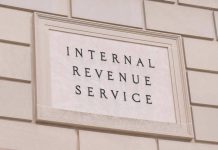
Want to explore the possibility of self-employment for retirees? You’ve come to the right place. In this article, we’ll unveil the best self-employment jobs for retirees like you. More importantly, though, we’ll discuss getting started with self-employment as a retired person – including what you should know about taxes, retirement planning, and a whole lot more.
Retirement can be boring. Not only can it be boring, but you may find yourself in a situation where you didn’t properly save for retirement. This can leave you looking for ways to make money while taking into consideration your age and health.
Many retirees are turning to self-employment as a way to make money. And if you spent your entire working career in corporate jobs or traditional employment, you probably have questions. After all, understanding self-employment as a retiree can be confusing! Before you decide on beginning your self-employed journey as a retiree there are a few things you should know.
Understanding Self-Employment for Retirees
Many retirees figure that they are done working once they enter retirement. However, boredom or money issues can cause people to look into self-employment as a way to kill time, make money, or both!
Simply put, self-employment is when an individual work for themselves instead of for a company. This means they are essentially both the employer and the employee. An important definition of self-employment lies with the Internal Revenue Service (IRS). According to the IRS, an individual is considered self-employed if any of the following conditions apply:
- A person carries on a business or trade as an independent contractor
- A person carries on a business or trade as a sole proprietor
- An individual is a part of a partnership that carries on a business or trade
How to Get Started: Self-Employment Jobs for Retirees
What does this mean to you? Well, there are several opportunities for a retired person to get into self-employment. Here are the best self-employment jobs for retirees. Read on below as we unpack each one more in-depth. We’ll start off with the best self-employment opportunities for retirees – turning your hobby into a second career!
- Convert Your Hobby or Career
- Consulting
- Work-from-Home Opportunities
Convert Your Hobby or Career
Think about what you were doing before you retired. For example, if you were a musician then become a music tutor. You can enter a lucrative market in a field that you enjoy that has a pretty flexible schedule opportunity. If you enjoy knitting sweaters, then find a way to sell those sweaters online! Either way, you can find something you’re already good at and capitalize on it.
Consulting
Another great option for retirees is consulting opportunities. Let’s say you were a professional that owned a business. You can provide your advice to individuals in need. You can help people manage their businesses and become profitable. If you have that knowledge, sharing it with the world can be an easy way you earn self-employment income.
Work From Home Opportunities
This is another popular option amongst retirees because it allows people to avoid a commute and work in the comfort of their own homes. Great opportunities for retirees that want to work from home include pet sitting, call centers, and child care. You can handle these opportunities as an independent contractor which makes it a great self-employment job option!
Tax Implications of Self-Employment for Retired People
If you earn self-employment income, you will need to understand what that means for your taxes. Many retirees believe that they can get tax breaks just because they are senior citizens and receive Medicare and/or Social Security. However, that’s not the case.
Instead, regardless of how old you are, you are still responsible for the self-employment tax rate of 15.3%. That rate consists of two separate numbers. There is a Social Security tax rate of 12.4% and the Medicare tax rate of 2.9%. Only your net earnings are subject to this tax, not just your self-employment income.
It is important to note that individuals only have to pay Social Security taxes on up to $142,800 of earnings. You could also expect an additional Medicare tax of .9% if your net earnings exceed $200,000 as a single filer (or $250,000 as a joint filer).
How to Find Your Net-Earnings
In order to understand the tax implications that come with self-employment, you must first understand your net earnings. You can figure out your net earnings by looking at your self-employment income compared to your costs. For example, if you made $65,000 in self-employment income but only spent $25,000 in costs then you have a total of $40,000 in net earnings. Of that amount, only 92.35% is subject to self-employment tax.
What About Income Tax?
Self-employment tax is completely separate from income tax. If you earn any self-employment income, you have to report it to the IRS! There are no ifs, ands, or buts about it! Generally, people report their income on Form 1099-NEC which reports income from a service that was provided.
The amount of your self-employed income gets added to your personal tax return (along with any other income you earned if applicable). This would include the Social Security benefit income that you receive. The net income from your self-employment is calculated on Schedule C of a 1099-NEC form.
If you are over the age of 65 you may have to fill out a Form 1040-SR instead. Due to the fact that there are a variety of forms, you should speak to a professional to ensure that you are filing your taxes properly!
Is There Any Way to Reduce Your Self-Employment Tax?
It’s true – self-employment taxes are higher than working a traditional job. This is one of the many differences between W2 vs 1099 workers.
Now, while the amount you have to pay can seem like a lot, there are some ways you can reduce that amount. Retirees can consider using a tax deduction if they want to try to save on the overall amount that they would have to pay to the IRS. There are plenty of examples of deductions, but let’s just go over an example.
If you become self-employed and buy pens for your business, those pens can be considered as a tax deduction. If it comes out of your pocket for the business, you will likely be able to write it off. However, taxes can be tricky to understand. That is why we recommend that you get help from a professional to ensure you are deducting everything you can within your limits.
How to Pay Self-Employment Taxes After Retirement
Seniors will have to pay self-employment taxes (which consist of both Social Security taxes and Medicare taxes). An individual would need to complete Schedule SE in order to properly calculate the amount of tax that they need to account for on their personal tax return. You would need a 1040-SR form if you are a senior.
If you don’t properly manage your self-employment tax, you could be subject to underpayment penalties or late penalties. That’s why we recommend you check out our complete guide on how to declare self-employment income on taxes. This will help prevent your self-employment wages from getting garnished by the IRS!
How Does Self-Employment Income Affect Social Security Benefits?
Retirees that are receiving Social Security benefits and then become self-employed could be in for a surprise if their benefits decrease or increase. Many people believe that once they start working again they automatically disqualify themselves from receiving Social Security benefits but that’s not true. Instead, you can still continue your self-employment all while collecting Social Security benefits at the same time. However, you can expect to see an impact on your benefits in a few different ways.
You could see more Social Security benefits from your self-employment. That is because the Social Security Administration (SSA) recalculates your benefits annually. Your self-employment income would be included in the recalculation. If during this recalculation, your income is higher than it was before, then you could see a higher benefit for the year. However, if you are younger than the full retirement age when you retire, and you earn more than the annual earnings limit, then you could see fewer social security benefits.
For more information, you can contact your local Social Security office. They can answer your questions and provide you with more information about how self-employment could impact your benefits.
Retirement Planning for the Self-Employed
Let’s say you are considering self-employment because you didn’t properly prepare for your retirement and need more money. You can benefit from planning for your retirement through your self-employment. There are a variety of options available when it comes to retirement plans that you can consider if you are self-employed. Four popular options are:
- Defined Benefit Plan
- Roth IRA or Traditional IRA
- SEP IRA
- Solo 401(k)
Defined Benefit Plan
This is one of the best retirement account options for people that are self-employed with no employees but have a high income and want to continuously save for retirement on an ongoing basis. The contribution limit is calculated on factors like your age, benefits you’ll receive at retirement, and expected investment returns.
This option has the advantage of the fact that contributions are considered tax deductible for the most part. Moreover, distributions in retirement are taxed as income. If you want more information then getting help from an actuary can help you figure out your deduction limit.
Roth IRA or Traditional IRA
For those just starting out, this option can be a great fit. The contribution limit for this account is $6,000 in 2021 unless you are 50 years old. If you are at least 50 years old, your 2021 limit is $7,000. The tax advantage of this type of account is the fact that withdrawals from this account in retirement are tax-free. There are no special filing requirements and you can use it whether or not you have employees.
SEP IRA
This retirement account is a great option for people who are self-employed with no or a few employees. The contribution limit for this retirement option can be a little bit complicated. However, just bear with us. In 2021, either the lesser of $58,000, up to 25% of compensation, or net self-employment earnings, with a $290,000 limit on compensation can be used to factor in the contribution. These limits are for 2021 so if you are reading this article after that year then there may be different limits!
The tax advantage to this option is the fact that you can deduct either the lesser of your contributions, 25% of net earnings from self-employment, or compensation of up to $290,000 per employee on your tax return. Distributions in retirements would be taxed as income and there is no Roth version of a SEP IRA. Again, just like every other option on this list, we would recommend that you get help from a professional to help you learn your options. These accounts can be difficult to understand!
Solo 401(k)
Many people are already familiar with a 401(k) account. This is a great option for those who are self-employed with no employee (if applicable, with the exception of a spouse). The contribution limit for 2021 is $58,000 plus a $6,500 catch-up contribution, or the entirety of earned income (100%), whichever is less. Understanding the contribution limits on this type of account can be tricky, much like it is with a SEP IRA or Defined Benefit Plan. That is why speaking to a professional will be able to help you understand what these limits mean for your specific situation and if this would be a good option. Learn more in our complete guide on 401Ks for self-employed individuals.
Final Thoughts on Self-Employment for Retirees
That should be all you need to know about self-employment for retirees in order to hit the ground running. At this point, it’s time to take action and make your goals happen! It’s never too late to chase your dreams and self-employment for retirees is a great way to do just that.
Understanding self-employment as a retiree can be stressful. Especially because you didn’t expect that you would be working right now (since you’re retired…). Many others who left retirement for self-employment had questions along the way that you may have too. And after reading this guide, maybe you’re ready to take the leap once and for all. If you want to get out of retirement to become self-employed, then more power to you.
However, before you make that change in life you should be aware of all of the implications that self-employment comes with, especially when it comes to the tax side of things. Make sure you are prepared to handle the taxes, and understand what you need to do and when. This can be difficult to understand on your own so we recommend that you get help from a professional to ensure that you know how to properly handle all aspects that come along with self-employment.




























